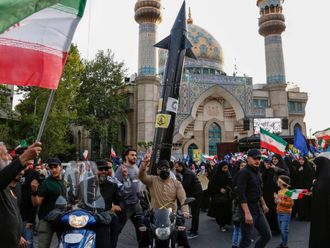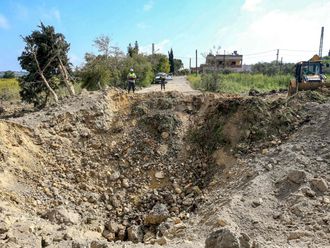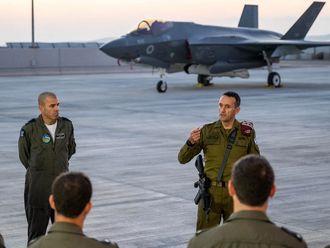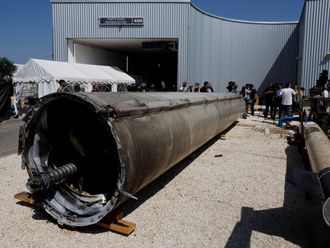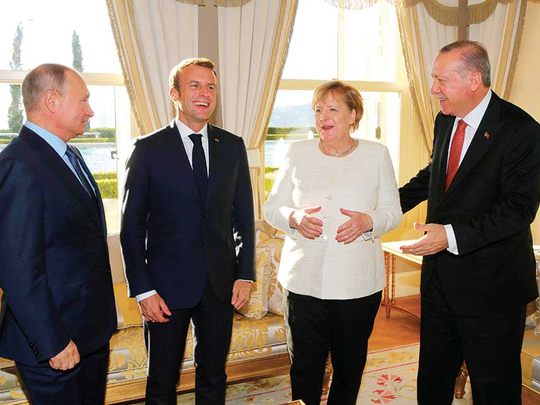
Istanbul - The leaders of Turkey, Russia, France and Germany on Saturday called for a ceasefire around the last major rebel-held bastion of Idlib in Syria to be preserved.
The four nations "stressed the importance of a lasting ceasefire" according to a statement read at the end of an Istanbul summit by Turkish President Recep Tayyip Erdogan, and also called for a committee to be established to draft a new constitution for Syria before the end of the year, "paving the way for free and fair elections".
Erdogan says leaders agree to complete Syria constitution committee by end of year. Laders say aid groups must have 'unhindered' access: statement.
The leaders of Turkey, Russia, France and Germany were holding talks about Syria at a summit on Saturday, hoping to lay the groundwork for eventual peace in a country devastated by years of war.
Common grounds read out by President Recep Tayyip Erdogan:
-
Only a political solution for Syria
-
No to the division of Syria
-
Maintain a ceasefire & defeat terrorists
-
Boost humanitarian aid
-
Help the return of refugees
-
Internationally observed elections
A key challenge is their divided opinions about Syrian President Bashar Al Assad, who is backed by Russia and Iran and whose government has retaken most of the territory that rebels seized during the war that has killed over 400,000 people.
Western countries condemn Al Assad for what they call indiscriminate attacks on civilians and Turkey has been helping insurgents trying to remove him from power.
Still, the leaders meeting in Istanbul hope a ceasefire in Syria’s northwestern province of Idlib can provide some momentum for peace efforts. The truce last month prevented a Syrian government offensive on the last rebel stronghold, which many feared would have set off another refugee crisis.
Idlib has been relatively calm since then, although both sides have accused each other of violating the deal. Syrian government forces shelled rebel-held villages in Idlib on Friday, killing seven people in violation of the agreement reached by Russia and Turkey, opposition activists said.
“The eyes of the entire world have now turned toward this meeting. I believe we won’t fail these expectations,” Erdogan said as talks started with Russian President Vladimir Putin, German Chancellor Angela Merkel and French President Emmanuel Macron.
Earlier, the four leaders walked in the gardens of the Vahdettin mansion, where the talks were held. The renovated Ottoman-era structure has sweeping views of Istanbul’s Bosporus strait.
Since 2015, the European Union has been struggling to cope with an influx of refugees, many from Iraq and Syria, and European countries hope war-torn areas can stabilise so that people can return. Germany has pledged millions of euros to help restore basic services in areas not held by Al Assad regime.
The goal is to “avoid a new humanitarian disaster,” Macron tweeted after arriving in Turkey.
Staffan de Mistura, the UN envoy for Syria, was also invited to the Istanbul meeting. He has urged Russia and world leaders to try to overcome Al Assad’s opposition to the formation of a committee to draft a new constitution widely viewed as critical to ending the war.
Other topics on the agenda include access for humanitarian aid and the eventual reconstruction of Syria, which has been in conflict for more than seven years. The ultimate hope is for a political solution that allows millions of Syrian refugees to return home and be safe.
The summit comes amid Turkish threats of a new military operation across the border into northern Syria, in zones held by Syrian Kurdish fighters. Turkey considers the Syrian Kurdish militia, which is backed by the United States, to be terrorists and a part of the Kurdish insurgency within Turkey.
On Friday, Erdogan said Turkey would not allow “terror groups located east of the Euphrates River” to threaten Turkey’s security.
Turkey launched two incursions into Syria, in 2016 and 2018, into areas west of the Euphrates, pushing Daesh terrorists as well as Syrian Kurdish fighters from its border.


